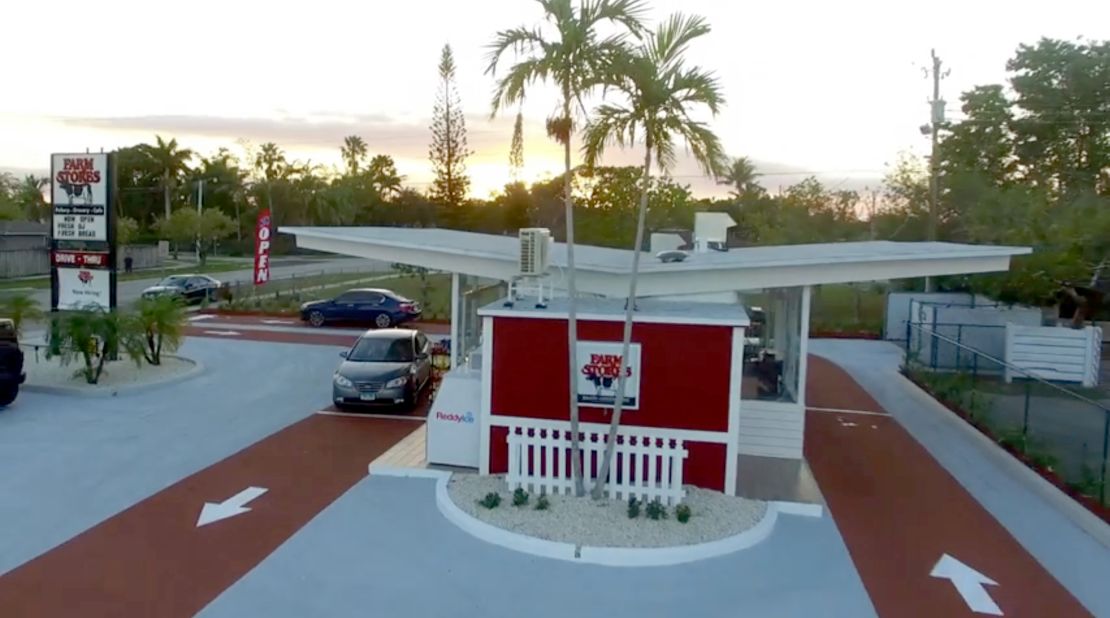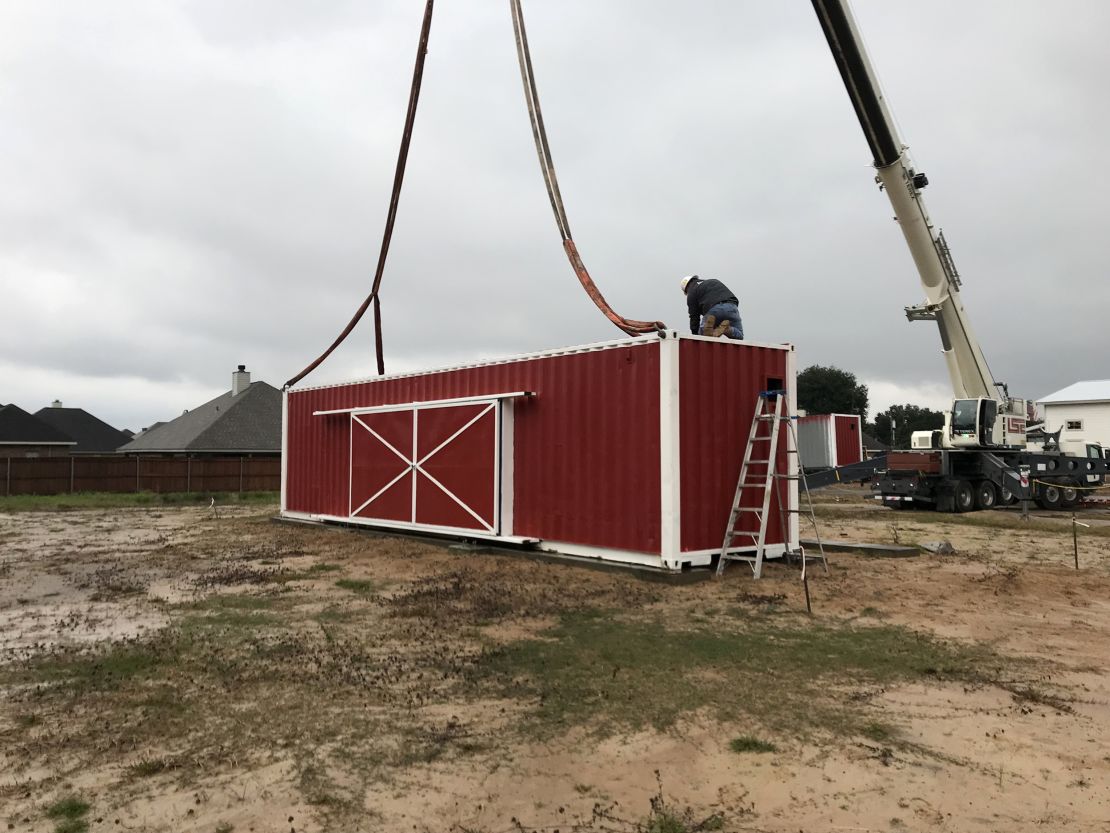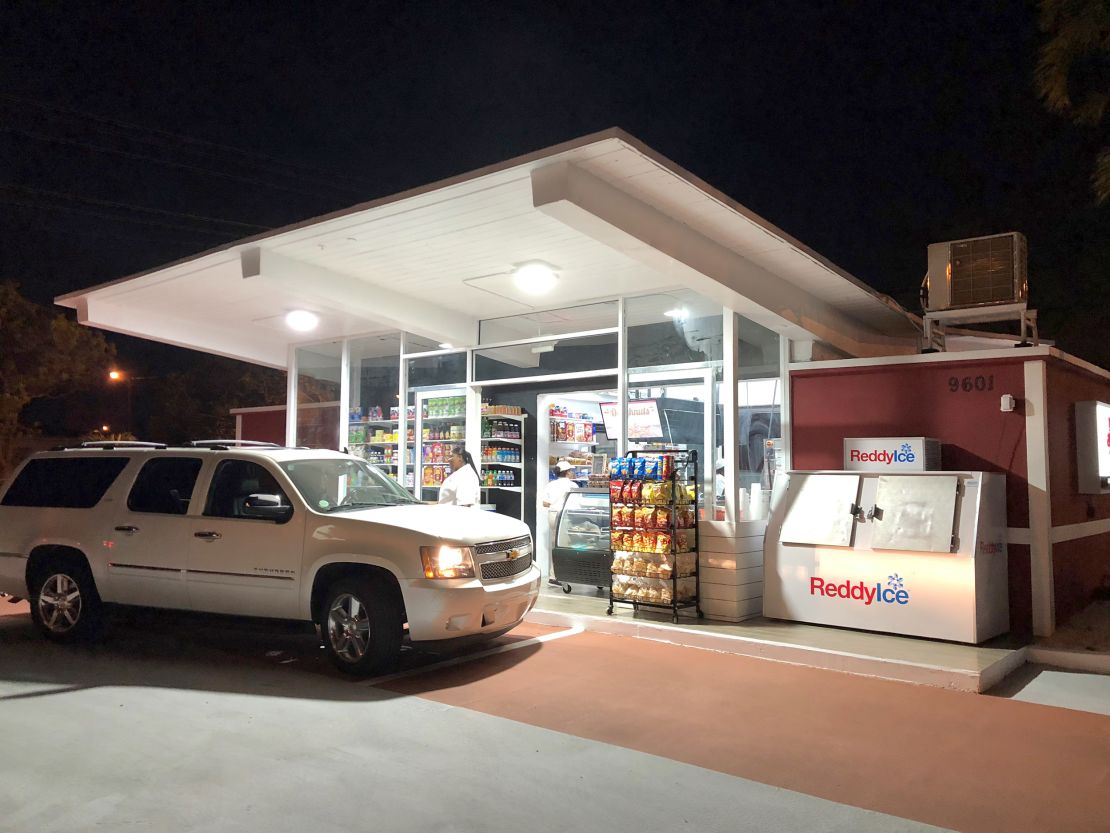Next month, a convenience store will open in Scott, Louisiana, that will be made from two repurposed shipping containers melded together and painted to look like a red and white barn.
The 640 square-foot store won’t be near many peoples’ homes. But it will be on the way for busy moms and dads driving their kids to and from school and oilfield workers heading to work – and that’s what matters to owner Robert Pressler.
Pressler, who has lived in Louisiana for eight years, is the first franchisee to open a drive-thru Farm Stores location in the state.
“When I moved to Louisiana, there was a drive-thru everything,” said Pressler. “To me, a drive-thru store is so convenient, especially when you have kids in the car.”
Florida-based Farm Stores opened its first location in Miami in 1957. It was a tiny 350-square-foot drive-thru that sold fresh food like milk, butter, bread, eggs and ice cream. Customers would order at the window and an employee would then walk out to their car and deliver the items.

The drive-thru concept was inspired by the pop culture of the time. “In the 1950s, Americans were already going to drive-in theatres and drive-in diners. The idea emerged to replicate this model in convenience stores,” said Maurice Bared, Farm Stores owner and CEO.
Farm Stores now has 65 locations in Florida. Bared wouldn’t disclose the company’s revenues, but noted that it does turn a profit.
Although the stores’ footprint has nearly doubled over time, the company’s mission of catering to the needs of busy parents remains the same, said Bared.
“This is mom’s neighborhood convenience store and we stock it with her in mind,” said Bared. So in addition to dairy goods sourced from local farms, the stores sell household cleaning products, detergents, pet food, baked goods that are made on-site and freshly squeezed juices delivered through a take-out window.
“Speed and freshness is key,” said Bared. “From the time a car pulls up and a customer orders bread, it takes less than two minutes to bake it and deliver it to them. Same thing with freshly squeezed orange juices.”
Shipping containers recycled into stores
Bared turned the company into a franchise in 2015 (28 of the 65 Florida stores are franchise locations) and has since set a plan for expanding Farm Stores nationwide in a low-cost, environmentally-friendly manner. He wants all new stores to be built in repurposed shipping containers.
Over the next seven years, he hopes to have as many as 600 new Farm Stores under development. More than half of those are already underway in New York, New Jersey and Connecticut.
“The majority of new stores are being built in shipping containers,” said Bared. He wishes all of them could be housed in shipping containers “but the local building codes and ordinances won’t allow it in some places.”
The idea to use old shipping containers was inspired by Bared’s own experience in the construction industry.
“I had this vision of a Farm Store in a container for two reasons,” he said. “First, the shoebox layout of a container is the same exact size as our stores,” he said. “I also grew up in the construction industry with my father having his own business. It’s where I saw the foremen had converted shipping containers into their offices.”

Farm Stores outsources the construction to shipping container manufacturers regionally to reduce transportation costs. “Within 30 days after we place the order, it’s ready to ship,” said Bared. He said recycling shipping containers this way is about 40% cheaper than building a store from the ground up.
More from Success
The repurposed store is manufactured using two containers and features tiled floors, sliding glass doors, and a canopy over the roof. The inside includes a baking station and employee bathroom.
Once the containers are delivered, the store is welded into place on a concrete foundation.
“The containers are very strong and made to withstand inclement weather, even hurricane force winds,” said Bared, adding that the sustainable and eco-friendly building concept is also easy to maintain.

Pressler’s Louisiana store will be the first to debut the shipping container model.
Pressler, who formerly worked in sales, read about Farm Stores in an article in 2016 and contacted the company about becoming a franchisee. He’s now also an area representative for Farm Stores and hopes to help open as many as 50 stores over the next few years.
Farm Stores charges each franchisee a one-time $50,000 fee, which includes a built-out store. The franchisee is responsible for paying for inventory and utilities.
Bared is hoping the shipping container store concept will catch on with budget conscious entrepreneurs.
“This [recycled] store might not have had much appeal in the 1990s,” he said. “But it makes so much sense now with the popularity of the green movement.”






















